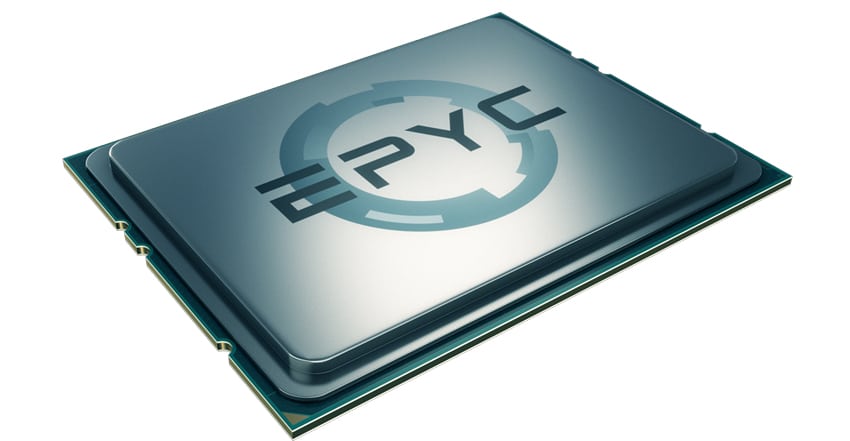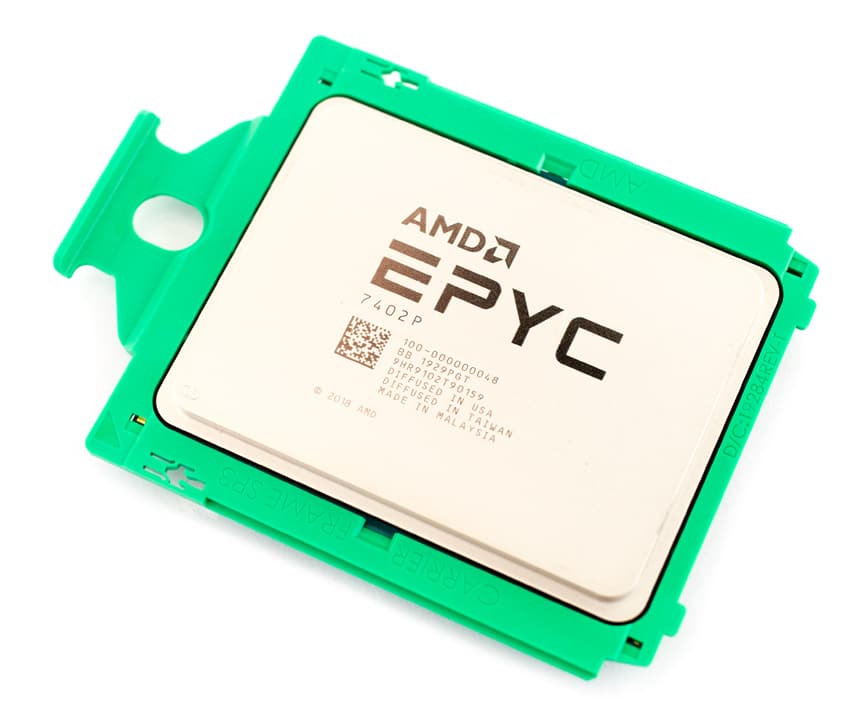
Today in Rome, Italy, AMD had a Rome in Rome day around its second-generation AMD EPYC processors, also known as EPYC 7002 or Rome. The day was centered around momentum news, new customers, even more vendors releasing servers that support the new EPYC, and the fact that its world records are growing. AMD also announced one new CPU for HPC.
As we said at the launch of the new CPUs, the architecture of the second-generation AMD EPYC is all about performance. It is the world’s first high-performance x86 7nm server CPU. AMD has claimed to improve the CPU core execution engine over the original “Zen” core. Additionally, EPYC Rome has twice the density, 1.25x the frequency (at the same power), and uses half the power (at the same performance of the previous model). AMD goes on to state that there is more on-chip bandwidth in all compute modes. The new CPUs also have high memory speed and bandwidth with a maximum theoretical memory bandwidth of 410GB/s (45% higher than Intel Xeon 2nd gen Scalable CPUs).
At the launch we covered world records hit by HPE and Supermicro. AMD states that the new line of CPUs now holds over 100 world records and is still growing. These records including 18 in HPC, 4 in M&E, 47 in SDI/Enterprise, 30 in Big Data, and 6 in Cloud. It is interesting to see how many more they can hit and whether or not future endeavors by competitors can catch up.
Yesterday, Dell EMC announced new PowerEdge servers that support the new AMD EPYC 7002 processors. Today several other vendors announced support for the new CPUs. IBM Cloud will integrate in the 2nd Gen EPYC CPUs for improving cloud security, better memory bandwidth for big data and analytics workloads and core scaling and breakthrough performance for container workloads. Nokia will use the processors to accelerate its Cloud Packet Core system which helps service providers deliver converged broadband, IoT, and machine-type communication services for 5G. ATOS stated its new Genci leverage EPYC 7002 processors to expand the use of supercomputing for the benefit of French scientific communities while lowering TCO. TSMC adopted the new CPUs to power its next generation research and leading process technology. OVHcloud also announced a new high-end hosting instance based off of the AMD EPYC 7402P processor.
For HPC, AMD announced yet another new CPU to its second-generation AMD EPYC family, the AMD EPYC 7H12 processor. This CPU has 64 cores, 128 threads, a 2.6Ghz base frequency, 3.3Ghz max boost frequency, and 280W TDP. It is specifically built for HPC customers and workloads and uses liquid cooling to help it deliver performance needed in supercomputing. ATOS has been using the new processor in its BullSequana XH2000 and has been able to achieve a LINPACK score of approx. 4.2 TeraFLOPS, ~11% better than the AMD EPYC 7742 processor.
ATOS also announced that the BullSequana XH2000 leveraging the new AMD EPYC 7H12 processor was able to hit four new world records. These four new records were in SPECrate test and are currently under review by the Standard Performance Evaluation Corporation (SPEC) committee and include:
- SPECrate®2017_Int_base 692
- SPECrate2017®_fp_base 528
- SPECrate®2017_fr_peak 586
- SPECrate®_int_peak 754
Sign up for the StorageReview newsletter

